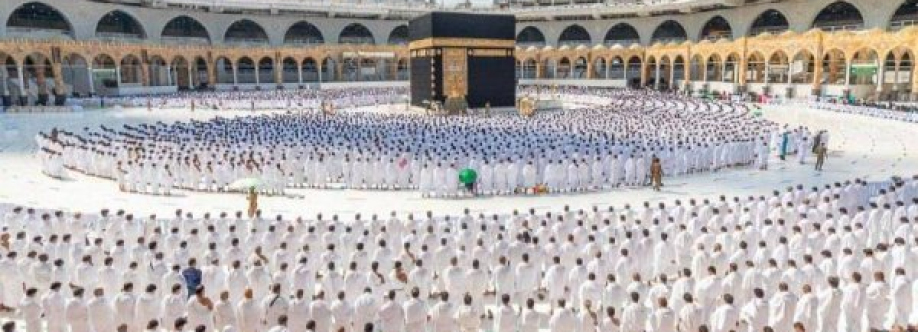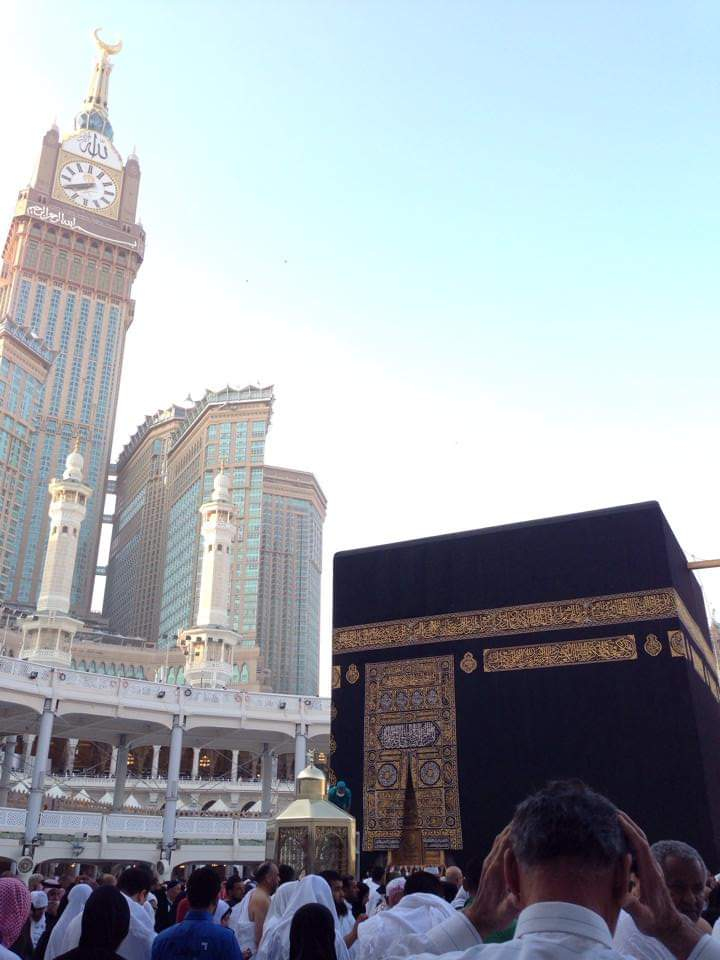Allah, the Most High, has guaranteed that all our prayers will be answered. In Surah Al-Ghafir, He says, “And your Lord says: Pray to Me, I will respond to you. Indeed, those who are too proud to worship Me will enter Hell, utterly humbled.” (Verse 6
This verse highlights the importance of prayer and the promise of Allah to respond to our supplications. However, it also warns us against becoming too proud to worship Allah, for such arrogance can lead us astray and result in our downfall.
To strengthen our trust in Allah and to cultivate a deeper relationship with Him, we can take the following steps:
1. Recognize Allah’s greatness and our own weaknesses.
2. Understand the purpose of our creation and the temporary nature of our lives.
3. Develop a deep love and reverence for Allah.
4. Read and reflect on the Qur’an regularly.
5. Perform the five daily prayers with sincerity and devotion.
6. Engage in acts of charity and kindness to others.
7. Practice patience and gratitude in times of hardship.
8. Seek forgiveness from Allah and from those we have wronged.
9. Cultivate a sense of humility and humbleness.
10. Avoid arrogance and self-righteousness.
11. Be mindful of Allah’s presence in all aspects of our lives.
12. Remember that Allah is always watching over us.
13. Seek guidance from Allah through prayer and supplication.
14. Place our trust in Allah’s plan and timing.
15. Practice consistent self-reflection and self-improvement.
16. Seek knowledge and wisdom from authentic sources.
17. Be mindful of our thoughts, words, and actions.
18. Strive to live a virtuous and righteous life.
19. Encourage others to do good and to worship Allah.
20. Be patient and persistent in our worship and devotion.
21. Remain steadfast in our faith, even in the face of challenges and hardships.
By following these steps, we can strengthen our trust in Allah and deepen our relationship with Him. We must remember that prayer is a means of communication with Allah, and that He is always ready to listen and respond to our supplications. May Allah guide us all towards a stronger faith and a closer connection with Him. Ameen.


umrah and haj
REFLECTION ON THE DAY OF ARAFAH. * Hajj Arafah... Arafah is a day of reflection. Contemplation about the Creator. Reflection on why we were created. Arafah is a small reflection of the Day of Judgment. The Day of Judgment is the day when humans will be weighed according to their level of righteousness within themselves. The Day of Judgment is a scorching hot day with no obstacles. The Day of Judgment is a day when people are busy thinking only about themselves and no longer caring about their children, wives, and relatives. The Day of Judgment is a tense day where many people are overwhelmed with anxiety and fear. The Day of Judgment is the long-awaited day to determine the fate of individuals, whether they will enter paradise or hell. The Day of Judgment is a day of regret. Regret for the sins and injustices they have committed. A regret because humans have neglected their duty for which they were created. How powerful the Day of Judgment truly is... So much so that eventually, humans will find protection even with the donation of a single date. How fortunate are those whom Allah grants protection from the severity of the Day of Judgment. They are just leaders. A young person who has reached adulthood but uses their age in obedience to Allah. Someone whose heart is always connected to the mosque. Two people who love each other for the sake of Allah. A man who refuses to commit adultery out of fear of Allah. Someone who donates with their right hand without their left hand knowing. A person who remembers Allah in solitude and sheds tears.
May you have a blessed worship on the Day of Arafah, my brothers and sisters... The day when Allah frees many people from hell. The most suitable day for prayer. The day when good deeds in the first ten days of Dhul-Hijjah are most beloved by Allah. So do not waste this precious opportunity. May we utilize the remaining days of our lives to do good deeds and be conscious of Allah Subhanallahu wa ta'ala. May Allah forgive our sins and negligence. Day of Judgment, may Allah make us just leaders, young people who mature in obedience, people whose hearts are always attached to the mosque, people who love each other for the sake of Allah, people who refuse when asked to commit adultery, people who donate sincerely and discreetly. People who always shed tears when remembering Allah in solitude. May Allah strengthen our faith and Islam, and may Allah cause us to pass away in a state of Husnul Khotimah (good ending). Ameen, O Lord of the Worlds.
The contemplation of the Day of Arafah is a religious symbol that emphasizes self-reflection and introspection as a Muslim. This message invites readers to contemplate the significance of the Day of Arafah and hopes to attain Allah's protection from the magnificence of the Day of Judgment. The message also mentions various qualities that a Muslim should strive for, such as being a just leader, growing in obedience to Allah, utilizing one's age in serving Allah, and safeguarding the purity of one's heart. They are also taught that the Day of Arafah is a precious day, where righteous deeds are more beloved by Allah, and it is a time to pray and seek forgiveness to increase one's piety and faith. This message also offers hope and prayers for everyone to attain salvation and goodness in the afterlife. The entire message emphasizes the importance of self-improvement and fulfilling one's obligations as a Muslim.
Why go for Hajj and Umrah:
As a spiritual journey, going on Hajj or Umrah holds great significance for Muslims around the world. While it's obviously not possible or necessary for every Muslim to make the pilgrimage, those who are able should strive to fulfill this important religious obligation at least once in their lifetime. For me, undertaking Hajj five years ago was one of the most profound experiences of my life so far. It's something I'll never forget and am thankful I had the opportunity to do.
Before performing Hajj myself, I'll admit my knowledge of the rituals and their deeper meanings was somewhat surface level. Sure, I understood the basic steps like circling the Kaaba seven times and moving between Mount Arafat and Mina. But it wasn't until I was actually there, immersed in the experience with millions of other pilgrims from every corner of the globe, that I truly appreciated the spiritual wisdom and lessons behind each act. Being in the sacred sites where so much of our faith's history unfolded in real life added a whole new layer of significance.
One thing that struck me was the powerful sense of unity it fostered. As Muslims, our different races, languages, social statuses and nationalities all melted away. We were all equal in the eyes of God, focused entirely on worshipping him together as one universal community. Dressing simply in plain white cloths symbolized our shared humanity above all else. Chanting Labaik Allahumma Labaik (Here I am, O God, here I am) side by side with brothers and sisters from every background reinforced our interconnection.
The rituals taught valuable life lessons too. Circumnavigating the Kaaba seven times represented man's journey through the seven stages of life - from birth and childhood through maturity, responsibility, aging and finally death. It reminded me of the impermanence of this world and that spiritual development should be our constant focus no matter our stage. Moving hurriedly between sacred sites to complete the Hajj on time under the hot sun simulated struggles we all face and our need to persevere through challenges with determination and faith.
Perhaps most profound was standing in Plain of Arafat, where the Prophet Muhammad (peace be upon him) gave his final sermon. Reciting supplications as the sun set, knowing millions of others were praying with me at the exact same moment, created an experience hard to describe. A sense of presence, humility and gratitude washed over me in a way that still resonates today. It was as if standing on that plain, surrounded by natural beauty and history, God's message of mercy, justice and compassion for all mankind was reaffirmed.
Since returning home, I've found myself a changed person - calmer, more contemplative, and focused on living according to Islamic principles each day. The spiritual refinement of Hajj left a deep and long-lasting impact that continues shaping who I am, how I think and what's important to me. It strengthened my faith in ways I didn't think possible prior to going. While Umrah is not compulsory like Hajj, I try to perform it every few years too for the blessings and reminder of staying grounded. I encourage anyone financially and physically able to consider adding this profound journey to their bucket list, regardless of their background or circumstances in life. The memories and benefits will stay with you forever.
Ifrad Hajj refers to a type of Hajj pilgrimage where the pilgrim solely focuses on performing the rites of Hajj without combining it with Umrah. The word "ifrad" itself means "to devote" or "to dedicate" in Arabic.
During Ifrad Hajj, the pilgrim enters into the state of Ihram at the designated Miqat (such as Masjid al-Haram in Makkah) with the intention of performing Hajj only. They do not perform the rites of Umrah before or during the Hajj pilgrimage.
On the 8th of Dhul Hijjah, the pilgrims proceed to Mina and spend the night in tents. On the 9th of Dhul Hijjah, they move to the plain of Arafah and spend the day in supplication, remembrance of Allah, and seeking forgiveness. This is considered the most important day of Hajj. After sunset, the pilgrims move to Muzdalifah and spend the night there, collecting pebbles for the stoning ritual.
On the 10th of Dhul Hijjah, the pilgrims return to Mina and perform the stoning of the Jamrat al-Aqaba, symbolizing the rejection of evil. After this, an animal sacrifice is performed, marking the completion of Hajj. The pilgrim then shaves or trims their hair, and exits the state of Ihram.
The remaining days in Mina are spent stoning the three pillars (Jamrat) symbolizing the rejection of Satan, performing Tawaf al-Ifadah, and Sa'i between Safa and Marwa. After completing these rituals, the pilgrim can choose to spend additional days in Makkah for voluntary acts of worship, such as performing Tawaf al-Wida (Farewell Tawaf) before departing.
It is important to note that Ifrad Hajj is one of the three types of Hajj, along with Tamattu' Hajj (performing Umrah first and then Hajj with a break in between) and Qiran Hajj (combining Umrah and Hajj without leaving the state of Ihram). Each type of Hajj has its specific rules and procedures.
I hope this information helps you understand the concept of Ifrad Hajj. If you have any further questions, feel free to ask.




